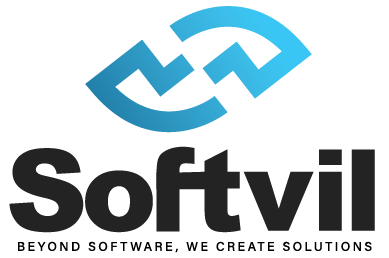In the high-stakes world of startups, where innovation meets the market at a breakneck pace, the pressure to launch quickly and make an impact is immense. However, in this rush to deliver, many startups overlook a crucial element that can make or break their success: quality assurance (QA). This article delves into the critical role that QA plays in the success of startups, highlighting why it should be an integral part of every startup’s strategy. We will discuss how the stakes of first impressions, the cost of defects, and the need for scalability all underscore the importance of quality assurance. Additionally, we’ll explore the role of QA outsourcing companies and how software testing startups can be pivotal in ensuring a product’s success.
The Stakes of First Impressions

For startups, the first impression is often the only impression. When a product first hits the market, customers form opinions quickly, and those opinions can be hard to change. The importance of quality assurance in this context cannot be overstated. A product that fails to meet expectations due to bugs, glitches, or poor user experience can lead to immediate negative reviews, damaging the startup’s reputation before it has a chance to establish itself.
Consider the example of a few high-profile startup failures where product quality was a significant issue. One such case is the launch of the healthcare startup Theranos. While its downfall involved several factors, the lack of rigorous QA on its product was a key contributor. The company’s blood-testing machines were found to produce inaccurate results, leading to severe trust issues and ultimately the company’s collapse. On the flip side, successful startups like Slack or Zoom gained massive user bases not just because of their innovative ideas but because their products worked smoothly and reliably from day one. These companies understood the importance of quality assurance and invested heavily in their QA strategy, ensuring that users had a positive experience from the start.
QA Outsourcing for Startups
For many startups, particularly those in the early stages, building an in-house QA team can be resource-intensive. This is where QA outsourcing companies come into play. These companies specialize in providing comprehensive QA testing strategies that can be scaled according to the startup’s needs. By leveraging the expertise of QA outsourcing companies, startups can ensure their product is market-ready without overextending their resources. This approach allows startups to focus on their core competencies while ensuring that quality is not compromised.
The Cost of Defects

The financial and reputational damage caused by launching a product with defects can be catastrophic for a startup. In many cases, startups operate with limited budgets, and the cost of fixing a flawed product after its release can quickly spiral out of control. This issue is compounded by the fact that in the digital age, word of product failures spreads rapidly, often through social media, leading to a loss of customer trust that can be difficult, if not impossible, to recover from.
The challenge of correcting course after a faulty release is significant. Once a product with defects is in the hands of customers, the startup is not only faced with the task of fixing the issues but also with regaining the trust of those who were disappointed by the initial release. This scenario is a stark reminder of the importance of quality assurance from the outset.
QA Outsourcing: A Strategic Move
To mitigate the risk of costly defects, many startups turn to QA outsourcing. By outsourcing QA, startups can access a broader range of expertise and testing tools than they might have in-house. This strategy allows them to identify potential defects early in the development process, reducing the risk of costly post-launch fixes. Moreover, QA outsourcing companies often provide flexible services that can be adjusted as the startup grows, ensuring that quality assurance remains a priority as the company scales.
QA as a Preventive Measure

The old adage “prevention is better than cure” rings particularly true in the context of software development. What is the role of QA in a startup? At its core, QA serves as a preventive measure, identifying and mitigating potential issues before they reach customers. This proactive approach is essential for startups, where the margin for error is often slim.
Early-stage QA can save startups significant money and resources in the long run. By catching issues early, startups can avoid the costly process of fixing bugs post-launch, which often involves not just development time but also customer support and potential damage control efforts. Furthermore, an effective QA strategy ensures that the product is reliable, which is crucial for building customer trust and achieving long-term success.
Implementing QA Testing Strategies
For startups, developing an effective QA strategy involves more than just running a few tests before launch. It requires a comprehensive approach that includes continuous testing throughout the development process. This can be challenging for startups that are operating under tight deadlines and with limited resources. However, by prioritizing QA and integrating it into the development cycle from the beginning, startups can ensure that their products are ready for the market.
Startups should consider adopting agile testing methodologies, where QA is integrated into every sprint or development cycle. This approach allows for continuous feedback and ensures that issues are addressed as they arise, rather than piling up until the end of the development process. Additionally, automated testing tools can be invaluable for startups, allowing them to perform repetitive tests quickly and efficiently, freeing up time for more complex, manual testing tasks.
Scalability and Quality

As a startup grows and its user base expands, maintaining product quality becomes increasingly challenging. However, it is crucial to ensure that the quality does not decline as the startup scales. Poor quality control during scaling can lead to performance issues, security vulnerabilities, and a general decline in the user experience, all of which can alienate existing customers and deter new ones.
Integrating QA into Rapid Development Cycles
The need to scale quickly often leads startups to adopt rapid development cycles, which can put a strain on QA processes. However, integrating QA into these cycles is essential for maintaining quality. By embedding QA into the development process, startups can ensure that quality remains a priority, even as the pace of development accelerates.
One effective strategy for integrating QA into rapid development cycles is to use continuous integration and continuous deployment (CI/CD) pipelines. These pipelines automate the process of testing and deploying code, ensuring that every change is tested thoroughly before it goes live. This approach not only helps to catch defects early but also ensures that the product is always in a deployable state, reducing the risk of last-minute issues derailing a release.
Startups should also consider collaborating with software testing startups that specialize in rapid testing and deployment environments. These companies can provide the expertise and tools needed to maintain high-quality standards, even as the startup scales and accelerates its development processes.
Customer Retention and Product Loyalty

For startups, customer retention is often more valuable than customer acquisition. Acquiring new customers is expensive, and if those customers are not retained due to poor product quality, the startup’s growth will stall. Consistent product quality is key to building trust with customers, and this trust is the foundation of long-term customer retention and brand loyalty.
High-quality products are more likely to lead to satisfied customers, who are not only more likely to make repeat purchases but also to recommend the product to others. This word-of-mouth marketing is invaluable for startups, as it can drive growth without the need for expensive marketing campaigns.
The Role of QA in Building Loyalty
What is the role of QA in a startup? QA plays a critical role in ensuring that the product meets or exceeds customer expectations. By catching and fixing issues before they reach customers, QA helps to create a product that is reliable, easy to use, and free of frustrating bugs or glitches. This reliability is key to building customer trust, which in turn leads to loyalty.
Moreover, startups that invest in QA are better positioned to respond to customer feedback. If customers encounter issues, a robust QA process allows the startup to address these issues quickly and effectively, demonstrating a commitment to quality and customer satisfaction. This responsiveness can further enhance customer loyalty, as customers are more likely to stick with a brand that listens to and acts on their feedback.
Leveraging QA Outsourcing for Retention
For startups looking to build a loyal customer base, QA outsourcing can be a strategic advantage. By partnering with QA outsourcing companies, startups can ensure that their product meets the highest quality standards, even as they scale. These companies bring a wealth of experience in testing across different environments and can provide valuable insights into potential issues that may not be immediately apparent to the startup’s internal team.
Additionally, QA outsourcing can help startups to maintain quality during periods of rapid growth. As the user base expands, the demand for rigorous testing increases, and outsourcing can provide the additional resources needed to keep up with this demand. By ensuring consistent quality, startups can build a loyal customer base that drives long-term success.
Conclusion
In the competitive landscape of startups, where the margin for error is slim and the stakes are high, the importance of quality assurance cannot be overstated. From making a strong first impression to avoiding the costly repercussions of defects, QA plays a vital role in ensuring that a startup’s product is not only functional but also reliable and user-friendly.
By adopting effective QA testing strategies and considering the benefits of QA outsourcing, startups can mitigate the risks associated with product defects, scale successfully without compromising quality, and build a loyal customer base that drives long-term success. In short, quality assurance is not just a box to be checked before launch—it’s a strategic imperative that can make the difference between a startup’s success and failure.
FAQs
QA ensures a startup’s product is reliable, bug-free, and user-friendly, helping to avoid costly issues after launch and build customer trust.
QA outsourcing offers specialized testing expertise, allowing startups to maintain product quality without the expense of an in-house team, making it a cost-effective and scalable solution.
High product quality leads to positive customer feedback and loyalty, while poor quality can damage a startup’s reputation and hinder growth.
Startups should use agile testing, CI/CD pipelines, and automated tools to ensure continuous testing and maintain quality throughout rapid development.
Consistent quality builds customer trust, leading to repeat purchases and strong brand loyalty, which are crucial for long-term success.
About Softvil
Softvil is a dynamic technology company specializing in providing innovative solutions for startups. With deep expertise in startup ecosystems, Softvil offers tailored services that help new businesses navigate the challenges of growth and development. Their comprehensive approach includes product development, quality assurance, and strategic consulting, all designed to support startups in bringing high-quality products to market quickly and efficiently. Softvil’s commitment to excellence and agility makes it a trusted partner for startups looking to scale and succeed in competitive industries.

